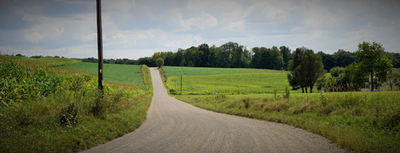Landowner Resources
Most people have never heard of “RULWA”. It’s more formally known as the Recreational Use of Land and Water Act, 68 P.S. §477, and is an important law for trails which rely heavily on private property, including the Rachel Carson Trail and the Baker Trail.
 The RULWA (and similar laws in every other state) is designed to encourage private landowners to open their land to the public for recreational purposes without charge. It does this by limiting the liability of the landowner with respect to personal injury or property damage claims. Thus, by explicitly permitting recreation on their land, the landowner’s liability does not increase, nor does their obligation to make their land safe, or to warn of dangerous conditions. In essence, despite having permission to use the land, in terms of liability, its users are treated as trespassers. Landowners are not required to open their land to all recreational activities. They're free to limit it to a single activity (i.e. hiking), or to certain hours or areas, etc.
The RULWA (and similar laws in every other state) is designed to encourage private landowners to open their land to the public for recreational purposes without charge. It does this by limiting the liability of the landowner with respect to personal injury or property damage claims. Thus, by explicitly permitting recreation on their land, the landowner’s liability does not increase, nor does their obligation to make their land safe, or to warn of dangerous conditions. In essence, despite having permission to use the land, in terms of liability, its users are treated as trespassers. Landowners are not required to open their land to all recreational activities. They're free to limit it to a single activity (i.e. hiking), or to certain hours or areas, etc.
Pennsylvania enacted this statute in 1966 in response to the growing number of landowners who were closing their land to hunting, fishing, hiking, and other recreations because of concern over lawsuits. The landowners were acting rationally – why risk getting dragged into court when you can just put up a few “No Trespassing” signs? Since the overwhelming majority of land in Pennsylvania is privately owned, this trend would have resulted in greatly diminished recreational access and opportunities for the public.
Pennsylvania continues to strengthen the RULWA in response to perceived weaknesses in landowner protection. The most recent amendment explicitly includes paved and unpaved trails as covered by the act.
The full text of the statute is available here (it's not long) and ConservationTools.org has a thorough guide to the Act.